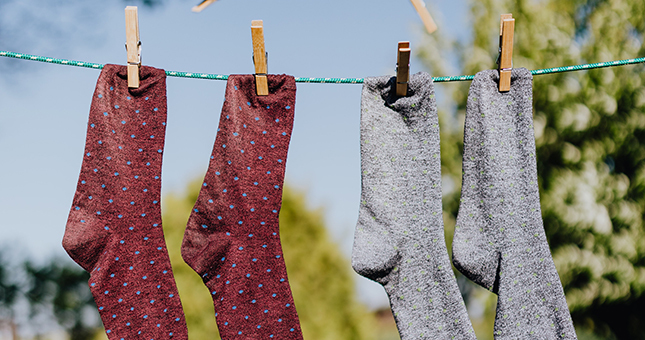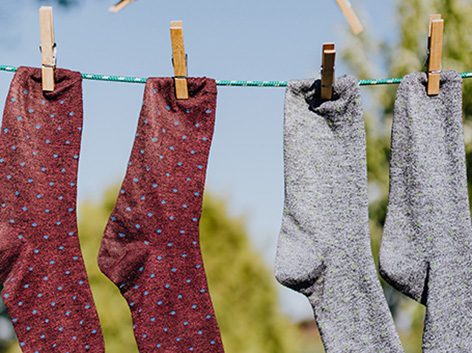
Laundry in a Time of COVID
In March 2020, I discovered that I have been "sheltering in place” for a decade.
For the past ten years, I have been a stay-at-home parent, homeschooled my children, and lived with a chronic illness. The idea of not leaving the house except for essentials, and spending all my time with my family is all too familiar.
Now, the COVID-19 pandemic has reduced our lives to the simple acts of keeping our homes and caring for those that live there. This is a lifestyle that stay-at-home parents and those who are ill know all too well.
Over the past many years, I have wrestled with the question that we all face now: how can we contribute meaningfully to the work of the church in the world, despite significant restrictions?
In her book Keeping House: The Litany of Everyday Life, Margaret Kim Peterson helps us answer that question: “Faithfully keeping house is a way to remember God’s promises of home and actively to anticipate the fulfillment of those promises. It participates in these promises by ministering to humans’ basic needs from food and clothing and shelter, and it points beyond these temporal and partial satisfactions to the One who is himself preparing room and a meal and a garden for each of us.”[1]
Caring for our home is subversive and prophetic. The hidden work of washing and folding laundry becomes a whisper of shalom. A warm meal shared is a glimpse of the Marriage Supper of the Lamb and a time where there will no longer be pain or hunger, and every tear will be wiped away. They are signposts to a future hope that we have when “all manner of things shall be well.”[2]
Peterson’s thoughts are helpful to shape the meaning of these humble acts but they can still seem small in light of the pain of our world.
And they are.
The need of our world is great. There are homes that are not safe and people without community, jobs, or care. There is sickness, death, addiction, abuse, hunger, poverty, hatred, and violence.
Yet, every act of the church has been small made great only by God’s mysterious grace. The vocation of the church in the world is eucharistic. We humbly offer up bread and he transforms it.
The bread that Jesus broke, and that we bring to the Lord’s table, is the most ordinary of breads. It is the same bread found on a first century grocery list. It is neither fancy nor magical. It is not gold, myrrh, or frankincense but our lives laid bare, offering the simple work of our hands.
Now, in this time, we offer up the common everyday task of keeping our homes and wait to see how God, with his self-giving love, will transform it through Jesus, by his Holy Spirit.
God is the God of small things done with faith.
Cleaning toilets, washing floors, and folding laundry are sacred and holy tasks. They are hidden and quiet, but they are also what God is asking of us in this moment in history.
These tasks will break us, just as Jesus broke the bread.
Serving God faithfully in these small ways has been one of the most difficult things I have ever done. It has been incredibly humbling to realize that I might only have the energy to care for my children, husband, and myself. Yet, somehow, in the great mystery of God, this is my meaningful contribution to the church.
The life of Jesus shows us that there is much to be done within a small sphere. He chose only twelve disciples, the size of a pandemic bubble, and more intentionally invested in only three of them.
Beyond this, we must trust and pray into the reality that God’s Holy Spirit is alive and well and working, redeeming and restoring the world despite our limitations. We have always been, and only will be, invited participants in the work God is already doing.
What then shall the church do in this time?
Pair socks, make beds, and prepare supper. In so doing, we proclaim the gospel until Christ returns.
[1] Margaret Kim Peterson, Keeping House: The Litany of Everyday Life (San Francisco: Jossey-Bass, 2007), 164.
[2] Julian of Norwich, Revelations of Divine Love (London: Penguin Classics, 1998), 22.


